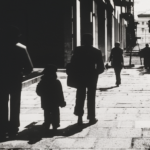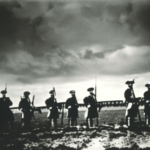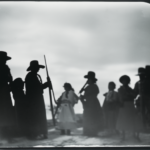One-line Summary:
In “City of Women,” a gripping historical fiction by David R. Gillham, a German woman named Sigrid navigates the complexities of life in Berlin during World War II, finding herself entangled in a dangerous affair and forced to make difficult choices.
Life in War-Torn Berlin:
Set in 1943, “City of Women” takes readers on a journey through the war-ravaged city of Berlin, providing a vivid portrayal of the struggles and hardships faced by its inhabitants. Sigrid Schroeder, the protagonist, is a seemingly ordinary German woman who works as a stenographer for the government and lives with her mother-in-law while her husband is away fighting on the Eastern Front.
Amidst the chaos and destruction, Sigrid’s life takes an unexpected turn when she becomes involved in an affair with a mysterious stranger named Egon. As their relationship deepens, Sigrid finds herself questioning her loyalty to her husband and her country. She becomes entangled in a web of secrets and lies, risking her safety and the safety of those around her.
The Power of Resistance:
As Sigrid becomes more disillusioned with the Nazi regime and the atrocities being committed, she is drawn towards acts of resistance. She joins an underground network of women who provide shelter and support to Jews and other persecuted individuals. Through her involvement in these activities, Sigrid discovers her own strength and courage, defying societal expectations and risking her life to help others.
Gillham expertly captures the tension and fear that permeated every aspect of life in Berlin during this time. The constant surveillance, the fear of betrayal, and the ever-present threat of discovery create a palpable sense of danger. Sigrid’s journey is a testament to the resilience of the human spirit and the power of ordinary individuals to make a difference in extraordinary circumstances.
The Complexity of Choices:
“City of Women” delves into the moral complexities faced by its characters in a time of war. Sigrid’s affair with Egon forces her to confront her own desires and question her loyalty to her husband. She grapples with the guilt and shame associated with her actions, torn between her love for her husband and her longing for a different life.
The book also explores the choices made by those who collaborated with the Nazi regime, highlighting the difficult decisions individuals were forced to make in order to survive. Gillham portrays the multifaceted nature of human behavior, showing that even in the darkest times, there is a spectrum of actions and motivations.
Key Takeaways:
- The resilience of the human spirit in the face of adversity.
- The power of ordinary individuals to make a difference.
- The moral complexities faced by individuals during times of war.
“We are all capable of doing terrible things, Sigrid. We are all capable of doing wonderful things. And we are all capable of doing nothing at all.”
In “City of Women,” David R. Gillham weaves a captivating tale of love, betrayal, and resistance in war-torn Berlin. Through the eyes of Sigrid Schroeder, readers are transported to a city filled with fear and uncertainty, where the choices made by individuals have far-reaching consequences. This gripping historical fiction serves as a reminder of the power of hope and the importance of standing up for what is right, even in the darkest of times.












